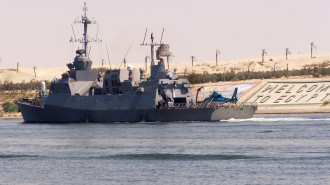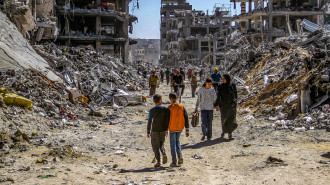UNRWA desperately seeking funding amid ever-worsening humanitarian crises
UNRWA desperately seeking funding amid ever-worsening humanitarian crises
Analysis: The UN agency for Palestinian refugees is facing financial trouble as it tries to cope with the growing regional refugee crisis.
2 min read
Palestinians in Gaza protest against UNRWA's decision to reduce food aid [AFP]
The UN agency for Palestinian refugees is facing a growing financial crisis that is forcing it to cut back on operations.
UNRWA needs to attract new cash or it will run out of money by October, according to the Lebanese newspaper, the Daily Star.
"We are potentially facing a situation where, in October, we might not be able to pay the salaries of 30,000 or so employees - this is a real threat," Matthias Schmale, the director of Lebanon affairs for UNRWA, told the Lebanese newspaper.
On 28 May, Schmale said on Twitter: "Reduced cash support will increase destitution among Palestine refugees from Syria in Beqaa valley; urgently ask partners for more support."
Funding is not keeping up with a growing refugee population and a sharp increase in the number of refugees due to the war in Syria and rampant instability in Gaza and the West Bank. Nearly 60,000 Palestinian refugees from Syria who fled to Lebanon and Jordan require emergency aid.
The lack in funding has caused a deterioration in UNRWA's services, especially in areas such as education.
Emergency appeal
In 2014, UNRWA needed more than $400 million to respond to the emergency in Syria, and about $300 million for emergency assistance in the West Bank and Gaza.
However, the UNRWA Syria Crisis Appeal set up to attract new funding has only received a fifth of the money it needs for 2015, and only received half of what it needed for 2014.
The ongoing shortfall means the agency has been forced to implement austerity measures. The average annual spending per refugee has nearly halved since 1975.
From July, UNRWA will be forced to suspend the $100 in monthly assistance it was giving for housing to Palestinian refugees from Syria living in Lebanon.
UNRWA was set up as a temporary agency in December 1949 after the 1948 Arab-Israeli war to support the 652,000 Arab Palestinians who were made homeless by the creation of Israel.
It now supports Palestinian refugees from both the 1948 and the 1967 wars, and their descendants, who are also considered refugees under international law.
The agency supports around five million Palestinian refugees in Syria, Jordan, Lebanon, the West Bank and Gaza. It provides them with education, health, relief and social services programmes.
It is predominantly funded from voluntary contributions, mainly from donor states.
On 2 June, UN Secretary-General Ban Ki-moon said the agency exists "because of political failure".
"In the absence of a just and lasting solution to the plight of Palestinian refugees, UNRWA has become more than an agency," he said. "It is a lifeline."
UNRWA needs to attract new cash or it will run out of money by October, according to the Lebanese newspaper, the Daily Star.
"We are potentially facing a situation where, in October, we might not be able to pay the salaries of 30,000 or so employees - this is a real threat," Matthias Schmale, the director of Lebanon affairs for UNRWA, told the Lebanese newspaper.
On 28 May, Schmale said on Twitter: "Reduced cash support will increase destitution among Palestine refugees from Syria in Beqaa valley; urgently ask partners for more support."
Funding is not keeping up with a growing refugee population and a sharp increase in the number of refugees due to the war in Syria and rampant instability in Gaza and the West Bank. Nearly 60,000 Palestinian refugees from Syria who fled to Lebanon and Jordan require emergency aid.
The lack in funding has caused a deterioration in UNRWA's services, especially in areas such as education.
Emergency appeal
In 2014, UNRWA needed more than $400 million to respond to the emergency in Syria, and about $300 million for emergency assistance in the West Bank and Gaza.
However, the UNRWA Syria Crisis Appeal set up to attract new funding has only received a fifth of the money it needs for 2015, and only received half of what it needed for 2014.
The ongoing shortfall means the agency has been forced to implement austerity measures. The average annual spending per refugee has nearly halved since 1975.
From July, UNRWA will be forced to suspend the $100 in monthly assistance it was giving for housing to Palestinian refugees from Syria living in Lebanon.
UNRWA was set up as a temporary agency in December 1949 after the 1948 Arab-Israeli war to support the 652,000 Arab Palestinians who were made homeless by the creation of Israel.
It now supports Palestinian refugees from both the 1948 and the 1967 wars, and their descendants, who are also considered refugees under international law.
The agency supports around five million Palestinian refugees in Syria, Jordan, Lebanon, the West Bank and Gaza. It provides them with education, health, relief and social services programmes.
It is predominantly funded from voluntary contributions, mainly from donor states.
On 2 June, UN Secretary-General Ban Ki-moon said the agency exists "because of political failure".
"In the absence of a just and lasting solution to the plight of Palestinian refugees, UNRWA has become more than an agency," he said. "It is a lifeline."

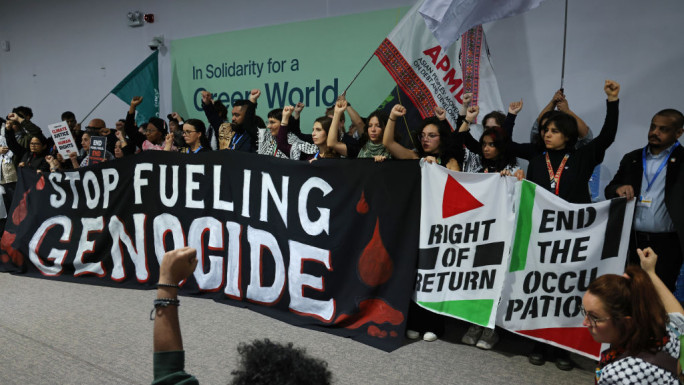
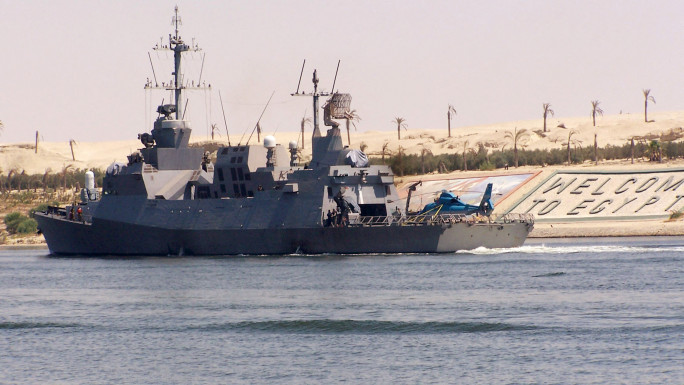
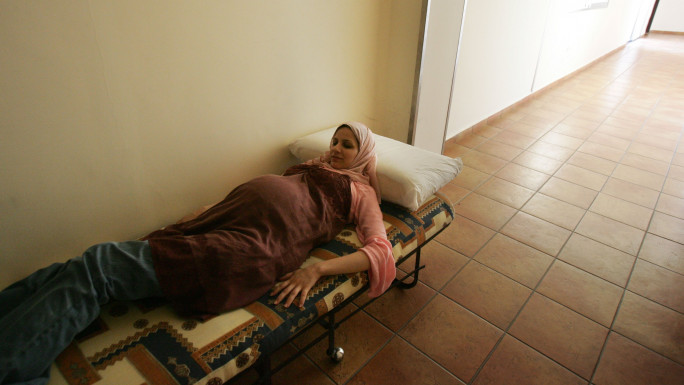
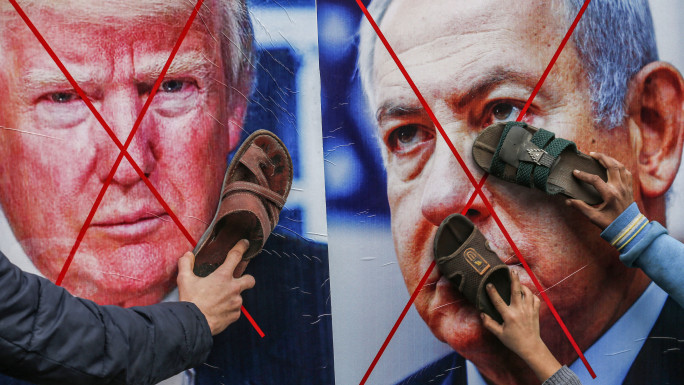
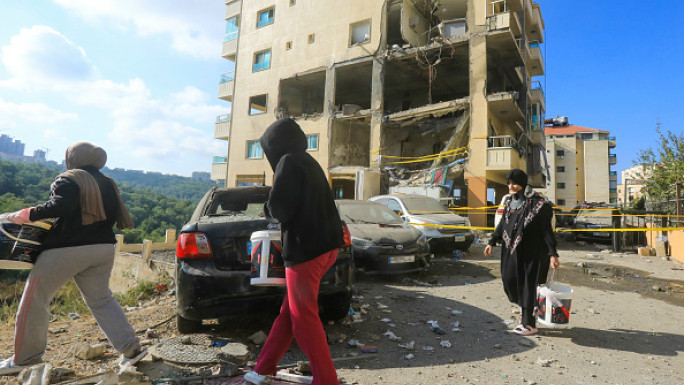
 Follow the Middle East's top stories in English at The New Arab on Google News
Follow the Middle East's top stories in English at The New Arab on Google News

